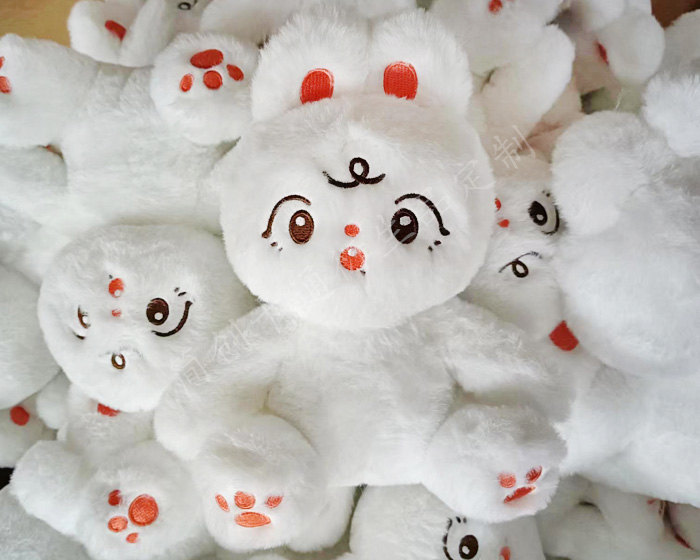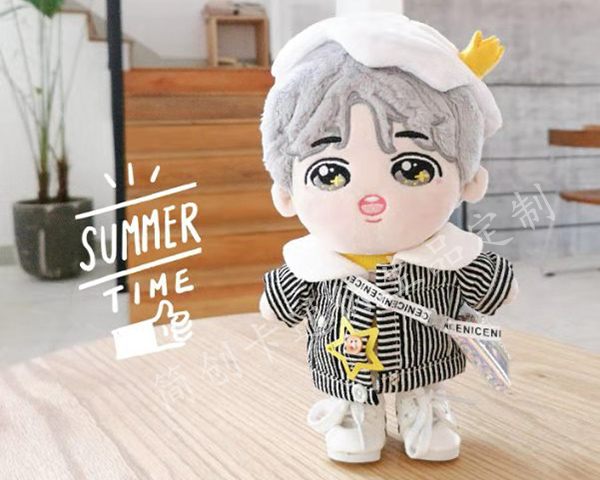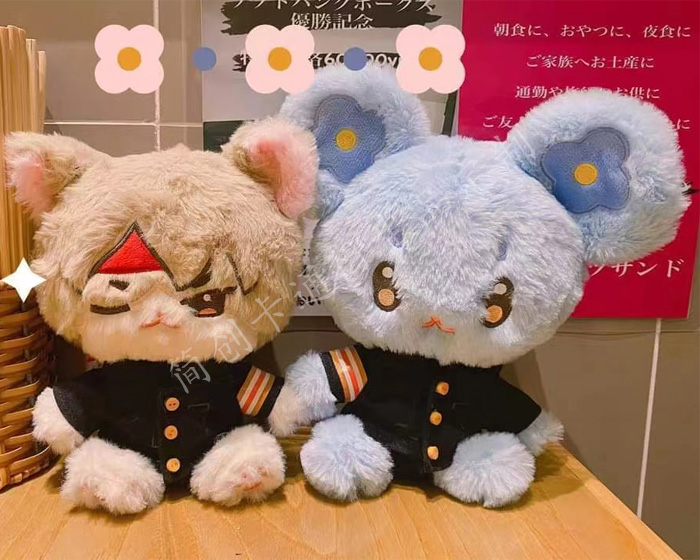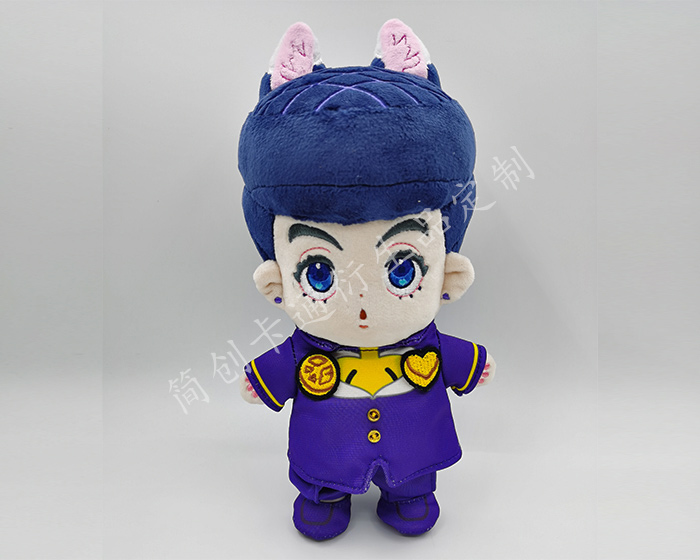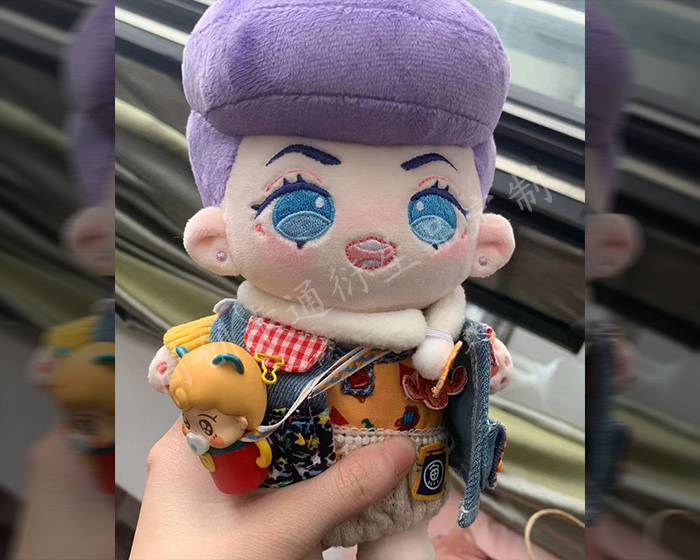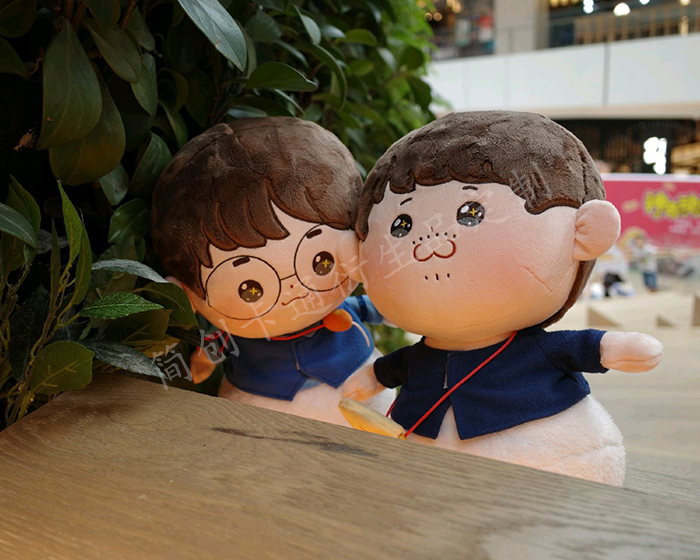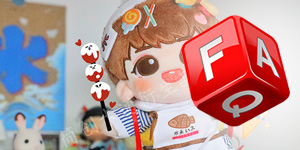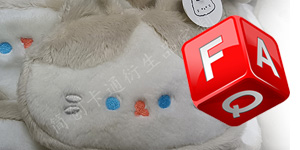cotton dolls can serve as effective educational tools, supporting various aspects of learning and development in children. Here are some ways in which cotton dolls can enhance educational experiences:
-
Language and Communication Skills: cotton dolls provide opportunities for children to engage in pretend play, which encourages language development. Children can engage in conversations, role-play dialogues, and narrate stories involving the dolls. This helps improve vocabulary, sentence formation, storytelling abilities, and communication skills.
-
Social and Emotional Development: Interacting with cotton dolls can support social and emotional development in children. Through imaginative play, children can explore different emotions, practice empathy, and learn to understand and express their own feelings. Dolls can become companions, encouraging social interaction, cooperation, and nurturing behaviors.
-
Cognitive Development: Cotton dolls can stimulate cognitive development in various ways. Children use their imagination and problem-solving skills to create scenarios and narratives involving the dolls. They develop critical thinking by making decisions, planning, and organizing their play. Additionally, dolls can help children develop spatial awareness, as they manipulate and position the dolls during play.
-
Cultural and Diversity Awareness: Cotton dolls can be used to introduce children to different cultures, traditions, and diversity. By incorporating dolls representing various ethnicities, cultures, or historical periods, children learn about different backgrounds and foster a sense of inclusivity and acceptance.
-
Fine Motor Skills and Coordination: Dressing and manipulating cotton dolls requires fine motor skills and hand-eye coordination. Children practice skills such as buttoning, zipping, tying knots, and fastening snaps while dressing the dolls. These activities promote dexterity and finger control, enhancing fine motor development.
-
Storytelling and Narrative Skills: Cotton dolls encourage storytelling and narrative development. Children can create imaginative stories, develop characters, and build cohesive narratives around the dolls. This enhances their creativity, language skills, and the ability to structure and sequence events.
-
Responsibility and Caretaking: Playing with cotton dolls teaches children about responsibility and caretaking. Children learn to care for and nurture the dolls, engaging in tasks such as dressing, feeding, and putting them to sleep. This fosters a sense of responsibility and empathy towards others.
-
Role and Identity Exploration: Through cotton dolls, children can explore different roles and identities. They can project themselves into the dolls' roles, experimenting with different behaviors, occupations, or life situations. This supports self-expression, identity formation, and understanding of others.
-
Problem Solving and Decision Making: Cotton dolls provide children with opportunities to solve problems and make decisions within their imaginative play scenarios. Children encounter challenges or conflicts during play and develop strategies to resolve them, fostering problem-solving and decision-making skills.
-
Educational Themes and Concepts: Cotton dolls can be integrated into educational activities to explore various themes and concepts. For example, they can be used in historical reenactments, science experiments, or math-based scenarios, making learning more interactive and engaging.
By incorporating cotton dolls into educational settings or playtime, children can benefit from a holistic learning experience that combines cognitive, social, emotional, and physical development. The versatility of cotton dolls allows for creativity, exploration, and the integration of educational content in a fun and interactive way.
The following are some examples of plush toys that our factory customizes for customers. Check out if there is one that you like best.
-
Custom Stuffed Animals
-
Plush Toy
-
Plush Dolls
-
Custom Animal Plush
-
Cute Plush Doll
-
Custom Stuffed Dolls
-
Custom Plush Toy
-
Cotton Dolls
-
Weighted Plush Toys
-
Cute Stuffed Animals
-
Custom Pet Stuffed Animal
-
Warmies Stuffed Animals
-
Weighted Stuffed Animal
-
Soft Toys
-
Plush Stuffed Doll
-
Custom Stuffed Dolls
-
Plush Maker
-
Bear Stuffed Toy
-
Anime Plush
-
Custom Stuffed Animal
-
Anime Plush
-
Custom Plush Toy
-
Personalised Stuffed Animal
-
Plush Animal Toys
-
Custom Plush Makers
-
Custom Plushies
-
Toy Manufacturer
-
Rag Doll Making
-
Custom Toys
-
Dog Plush Toys
-
Custom Rag Doll
-
Stuffed Animals
-
Custom Plush
-
Custom Plush Dolls
-
20cm Cotton Doll
-
Jojo Plush
-
Custom Doll
-
Jojo Doll
-
Large Plush Toys
-
15cm Cotton Doll
-
Dumpling Plush
-
Cotton Doll







